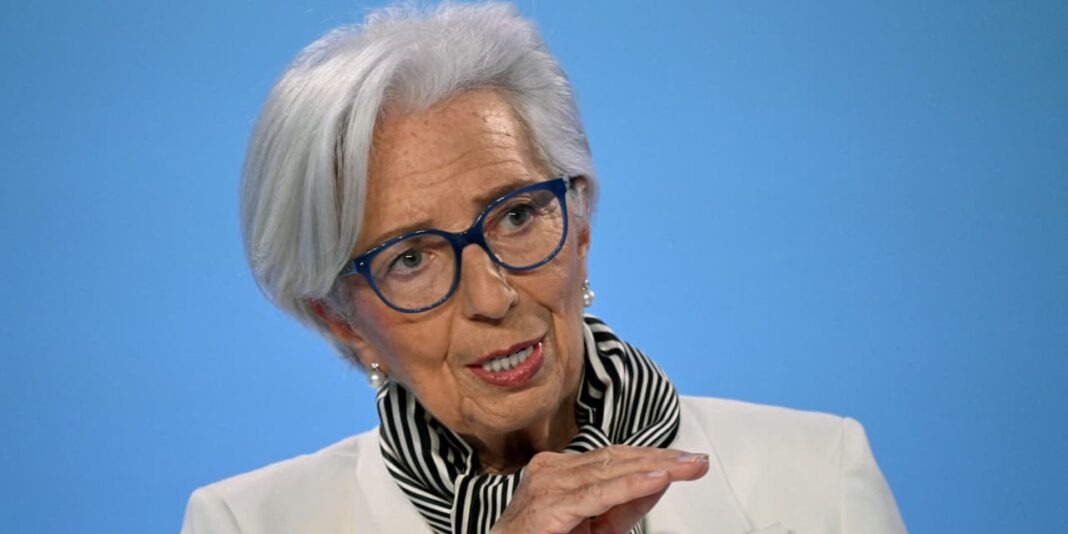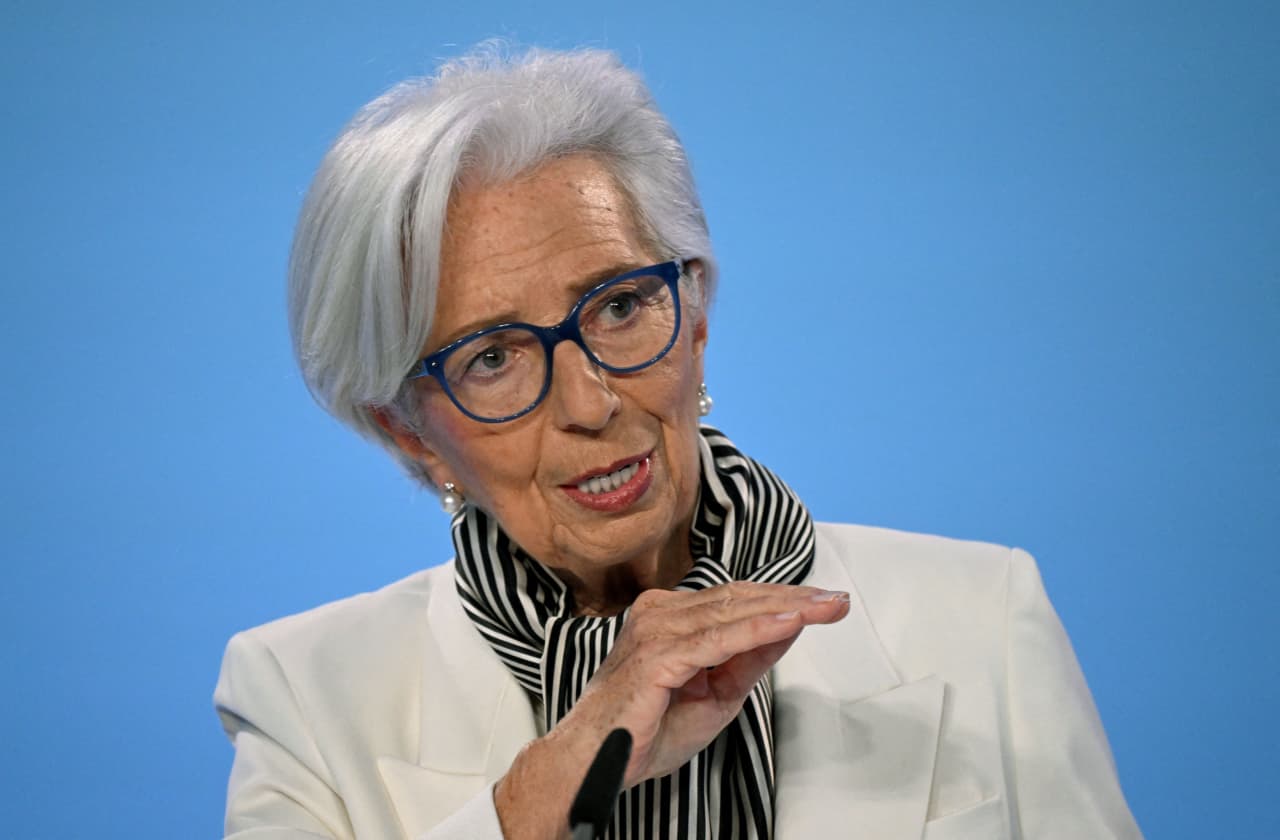Christine Lagarde is expected to give little away at the European Central Bank’s upcoming monetary policy meeting in Frankfurt this Thursday meaning markets will be left looking for subtle signs of the bank’s intentions as investors are increasingly pricing in cuts for June.
The bank will almost certainly keep interest rates unchanged at 4%, having held them at record highs since October following a series of 10 consecutive hikes in 2023, as it pushes forward in its fight to lower eurozone inflation.
Instead, money markets will be left looking for subtle signs of the ECB’s intentions as investors are increasingly pricing in the prospect the bank will make its first rate cuts in June.
As of now, the ECB has pushed back against any talk of lowering interest rates, in sticking to its assertions that it will only start making cuts when the data clearly shows that inflation has started to fall to target levels of 2% across the eurozone.
New data published on Friday saw markets pare back their expectations for any imminent cuts to the ECB’s interest rates as investors took the view that current data fails to support the prospect of cuts at the bank’s April meeting
The worse-than-expected figures from the European Union’s official data provider Eurostat showed the eurozone experienced higher-than-expected inflation of 2.6% in February – down from 2.8% in January and from a peak of 10.6% in October 2022.
In the view of money markets, this leaves the ECB’s June meeting as the earliest opportunity for rate cuts, as the bank does not have a meeting scheduled for May.
A poll of 73 economists by Reuters shows two-thirds of forecasters believe the ECB will make a 25 basis point cut in June that would see interest rates lowered to 3.75%. Markets are expecting 90 basis points of cuts in 2024, compared to the 150 expected at the start of the year.
The ECB is, however, unlikely to give any clear commitments to any possibility of June cuts, meaning investors will be left looking for subtle signs of the bank’s intentions in Lagarde’s communications at the press conference that will follow the governing body’s meeting.
Analysts at RBC Capital Markets led by Peter Schaffrik said they “expect the ECB to retain optionality with Lagarde likely to stress the ECB’s data dependence, and its particular focus on incoming information on wage growth.”
ING’s analysts led by Carsten Brzeski, however, suggested the ECB might give subtle signs in its communications that it is open to the prospect of cuts that would pave the way for a lowering of its interest rates in June.
“Over recent months, the ECB’s communication regarding rate cuts has gradually changed from ‘we didn’t even spell rate cuts’ to ‘it was too early to discuss rate cuts’ in January. If the Bank were to say that members ‘had a first discussion on preconditions for rate cuts’ or ‘we decided to start this discussion at the next meeting’, this would mark a further shift in the direction of policy easing,” ING’s analysts said.
New staff forecasts from inside the ECB could also support the prospect of rate cuts if they offer any signs that inflation could fall back down to 2% before the third-quarter of 2024.
Analysts are expecting the bank’s staff forecasts will likely see downgrades to its headline and near-term growth figures.
“Any downward revision to the growth profile and any signs that inflation could reach 2% earlier than the third quarter of next year would open the door to earlier rate cuts,” ING’s analysts said.

